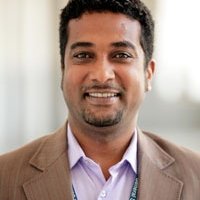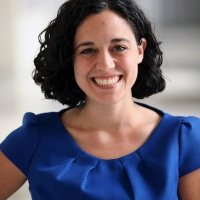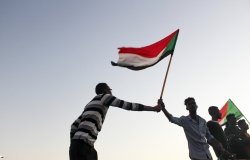"Panel Photo" by The Wilson Center Africa Program
The Role of IGAD: A Regional Approach to the Crisis in South Sudan
Dr. Getachew Gebrekidan and Mr. John Prendergast discuss the conflict in South Sudan and the role of the Intergovernmental Authority on Development (IGAD), the U.S., and other actors in the mediation process.
Overview
On July 16, 2015, the Wilson Center Africa Program hosted a discussion on the conflict in South Sudan and the role of the Intergovernmental Authority on Development (IGAD), the U.S., and other actors in the mediation process. Dr. Getachew Gebrekidan, a visiting scholar from the Southern Voices Network* and an Assistant Professor at the Institute for Peace and Security Studies of Addis Ababa University in Ethiopia, presented his research on "The Role of IGAD: A Regional Approach to the Crisis in South Sudan." Mr. John Prendergast, Founding Director at the Enough Project, also presented, focusing on recommendations for the United States and international community in working towards a peaceful resolution in South Sudan.
Dr. Getachew provided background and context to the situation in South Sudan. He emphasized that the conflict is not driven by ethnicity, but rather by a power struggle between two individuals, President Salva Kiir and former Vice President Dr. Riek Machar, who are using ethnicity to sustain or gain power. IGAD has been working to broker a power sharing agreement between the two sides, with limited success. Dr. Getachew posited that the special interests and involvements of the members of IGAD, particularly Uganda and Sudan, have limited the organization's ability to serve as an impartial mediator.
Dr. Getachew provided several policy recommendations for IGAD member countries, the African Union, the United States, and "IGAD-Plus" as a whole (which includes the IGAD member countries, plus the U.S., U.K., U.N., A.U., China, and Norway). Chief among his recommendations was to exclude Uganda and Sudan from the IGAD mediation team and to initiate a peace dialogue between these two countries. He also recommended that IGAD-Plus incorporate inclusive mechanism, encourage frequent discussion and cooperation, use sanctions and military intervention, dismantle the individualization of power, and devise and apply hybrid justice mechanisms. He further recommended that the U.S. remain fully active and involved in IGAD and the mediation process, as it did during South Sudan's referendum for independence. Finally, Dr. Getachew suggested that the U.S. engage with China at bilateral and multilateral meetings, and pursue firm action, whether militarily or in the form of tough sanctions on top leaders, to support the August 17th deadline for an agreement set by IGAD.
The recommendations espoused by Dr. Getachew were echoed by Mr. John Prendergast, who emphasized the importance of high-level diplomacy and leverage in the conflict resolution process. He emphasized that President Kiir and Dr. Machar do not see sharing or relinquishing power as a viable option because they will lose the benefits, immunity, and patronage networks tied to their positions. In order to force them to reach and agreement, the international community, including the United States, needs to put significant financial pressure on the two leaders. Mr. Prendergast believes this should be done in the form of strong sanctions that target the senior leadership with travel bans, asset freezes, and an arms embargo, along with prosection for individuals who violate the embargo. He also recommended recovery and return of stolen assets. At the same time, the U.S. needs to sustain high level engagement with leaders in South Sudan and neighboring countries beyond the end of President Obama's trip to the continent.
* The Southern Voices Network (SVN) is a consortium of 16 research and policy organizations from across Africa that seeks to foster dialogue and increase the visibility of African perspectives within the U.S. policy arena. One of the main components of the SVN is the Africa Research Scholarship Program, through which the Wilson Center Africa Program hosts scholars from member organizations for a 3-month resident scholar program in Washington, D.C., allowing them to engage with U.S. policymakers and practitioners and conduct policy-oriented research. The SVN is made possible through the generous support of the Carnegie Corporation of New York.
Speakers
Hosted By

Africa Program
The Africa Program works to address the most critical issues facing Africa and US-Africa relations, build mutually beneficial US-Africa relations, and enhance knowledge and understanding about Africa in the United States. The Program achieves its mission through in-depth research and analyses, public discussion, working groups, and briefings that bring together policymakers, practitioners, and subject matter experts to analyze and offer practical options for tackling key challenges in Africa and in US-Africa relations. Read more
Thank you for your interest in this event. Please send any feedback or questions to our Events staff.












